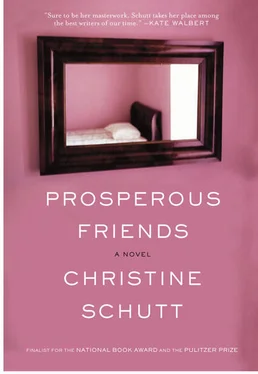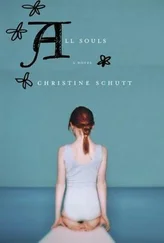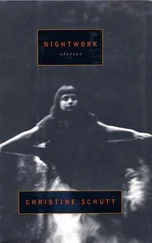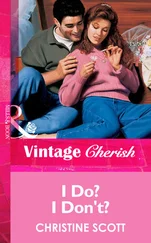What was that all about do you suppose?
And the two fat men who sang for their breakfast? Ed said he didn’t know where to look when they started singing a medley at the table: the sentimental journey song and the other one, with the “yangy sound,” Ed calls it. “Sunshine, you are my sunshine, you make me happy. .” All and all, she and Ed have had some very nice guests. The two fat men in matching sherbet colors, lime and mango, they said, were harmonizers, barbershop type.
Aura surprises herself sometimes with what she knows. Barbershop quartets, for instance, she has never seen one but on TV.
An actress stopped once for a week engagement at the opera house. Three nights she stayed. The actress had rich friends nearby, but a B & B was as close to a home of any kind as she would ever get, which was pretty much all she said. She didn’t have time to take the boat to Rockport or hike or bike in Acadia. Lobster was all she knew of Maine. The actress was funny on TV but not in life. She was one of those who didn’t like to talk at breakfast but gestured for coffee and black toast, no butter.
That visit had made Aura sad, and a couple, earlier in the summer, crying — or the girl crying — had astonished her. Easy to be awed by extravagant suffering or bitterness — look at her own over her father and his disappointed life — but joy or the quiet delight Aura once saw in the softened face of a woman who knew she was watched even as she ate, watched and admired, to witness such affection of one for another, to see the kinder moments as she has, and Ed has, too, this was all and enough. Ed often acts surprised, not so much by her observations as by the thing itself — heart or goodness or whatever a person wants to call it. Plants, he has said, are nicer. And that’s true, but, oh, she lets herself be teased; he likes to nettle her, she knows, which is another way to love.
The breakfast that comes with a night at the Wax Hill B & B includes vegetables and fruits from the garden. Yesterday she served a couple from Minnesota grilled tomatoes topped with browned bread crumbs along with bacon and sunny-side eggs. She doesn’t squeeze oranges; she doesn’t go that far — no fresh juice, just Tropicana, but Aura’s mother! Every morning the woman found the time to give her husband and children four ounces of fresh orange juice. Sausages and powder biscuits were also a part of their diet. No wonder, her father’s heart. Aura’s parents were long married, too, and met in the same way in high school. Her mother taught sixth grade — spelling tests and prepositions, long division, Greek myths.
The Greeks, her mother told her, valued hospitality. For eating rather than feeding his guests, the one-eyed giant Polyphemus lost his eye. Pious mortals who stick to the code fare better. Like the poor old couple — what were their names? — who offered all of what they had for the comfort of gods in disguise: the best chair, their last chicken, the cask of wine now sour but the gods make it sweeter. In the end, the old couple are granted any wish — and this is the tender part of the story Aura’s mother loved and she does, too — the old couple say we have lived so long together, let neither of us ever have to live alone. Grant that we may die together. So it is that in dying they have only enough time to cry, “Farewell, dear companion,” before they turn into trees, a linden and an oak, sprung from one trunk.
For their generous support I am indebted to the John Simon Guggenheim Memorial Foundation, the New York Foundation of the Arts, and Yaddo; for guidance and close reading thank you to Rebecca Godfrey, Elisabeth Schmitz, and Will Schutt. To Nick Schutt for joy, thank you, and to David Kersey, great enabler, love.












